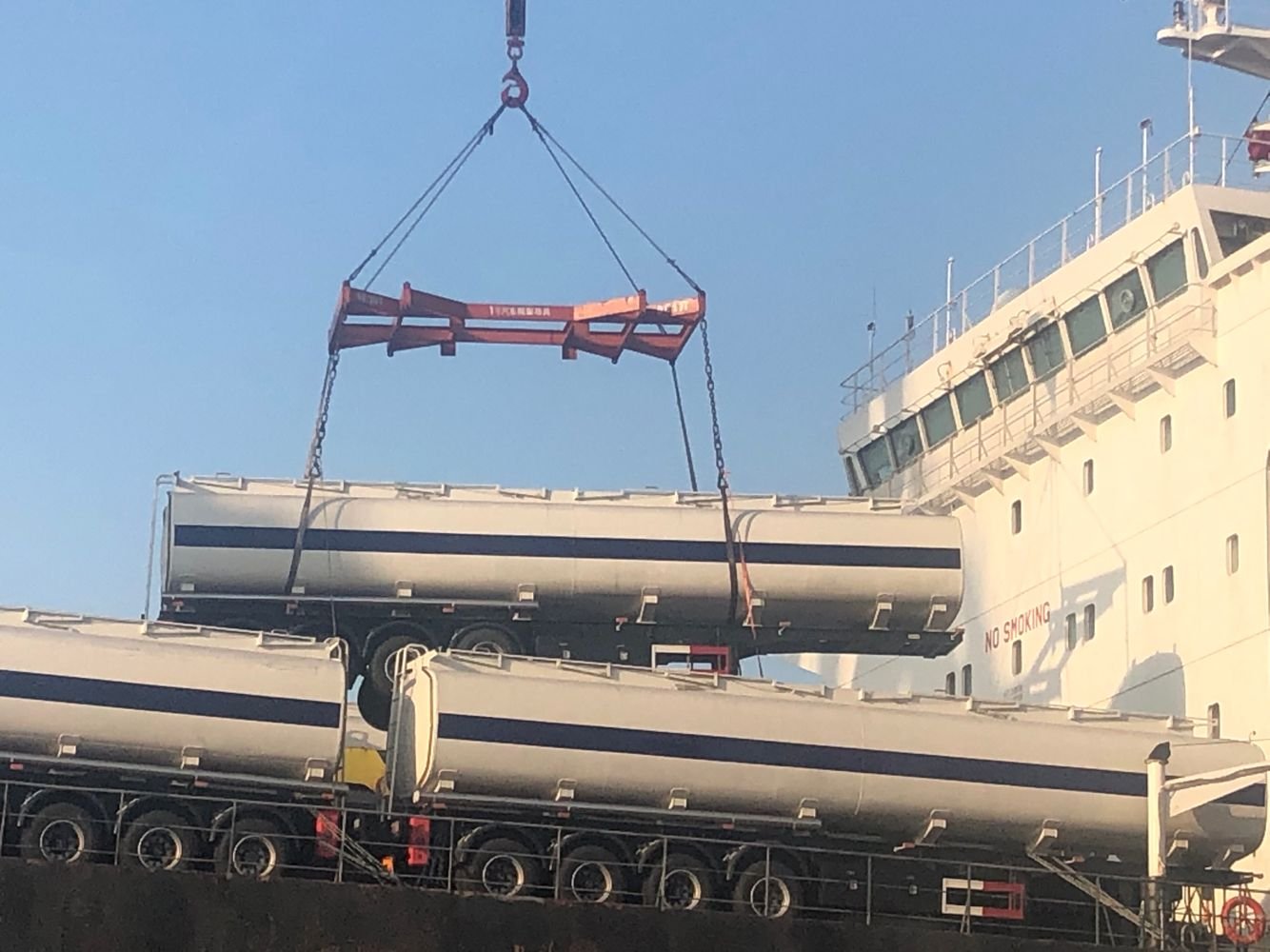Understanding Water Tank Truck Capacity: How Many Gallons Can It Hold?

Water tank trucks, often referred to as water trucks or water tankers, play an essential role in various industries, including construction, agriculture, and firefighting. They are specially designed to transport large quantities of water for various applications, such as dust control on construction sites, irrigation in agriculture, and emergency services for firefighting. Understanding the capacity of these trucks is crucial for ensuring efficient operations and meeting project requirements effectively.
Introduction to Water Tank Trucks
Water tank trucks are specialized vehicles equipped with a tank for storing and transporting water. Typically mounted on a truck chassis, these tanks come in various sizes and configurations, allowing them to meet the specific needs of different industries. The primary purpose of a water tank truck is to deliver water efficiently and safely, whether it’s for construction sites, agriculture, or emergency response. Their versatility and adaptability to various applications make them significant assets across numerous sectors.
Overview of Different Types of Water Tank Trucks
Water tank trucks come in several varieties, including light-duty trucks for smaller operations and heavy-duty models designed for larger-scale needs. Different configurations, such as the Foton light water bowser truck, cater to specific purposes. The Chary model is known for its robust construction and high capacity, making it suitable for both urban and rural environments, whereas the Foton light water bowser truck is designed for agile performance in tighter spaces, providing flexibility without sacrificing efficiency. Each type serves unique operational requirements, ensuring that water delivery is optimized for various applications.
Determinants of Water Tank Truck Capacity
The capacity of a water tank truck is influenced by several key factors, each contributing to its overall effectiveness and efficiency in water delivery.
Factors Influencing Water Tank Size
Gross Vehicle Weight Rating (GVWR)
The Gross Vehicle Weight Rating (GVWR) is a critical determinant of a water tank truck’s capacity. It refers to the maximum weight a vehicle can safely carry, including its own weight plus that of the cargo. Understanding GVWR is essential for determining the allowable volume of water the truck can transport without exceeding safety limits, thereby ensuring compliance with regulations and promoting safe operations.
Axle Load Capacity
Another important factor is the axle load capacity, which refers to the maximum load that can be carried by each axle of the truck. This specification is crucial in determining how much water the truck can carry while adhering to legal limits. It ensures that the truck maintains stability during transport, reducing the risk of accidents caused by overloading and improper weight distribution.
Truck Frame and Chassis Specifications
The frame and chassis specifications of a water tank truck also significantly influence its capacity. A sturdy and well-designed frame can support a larger tank without compromising the vehicle’s integrity or performance. Additionally, the overall design of the chassis can affect handling and maneuverability, particularly when transporting heavy loads over uneven terrain.
Common Materials Used in Water Tank Construction
The materials used in the construction of water tanks also play a pivotal role in determining their capacity, durability, and performance.
Steel Tanks
Steel tanks are common in water tank truck construction due to their strength and durability. They can withstand high pressure and extreme weather conditions, making them a reliable choice for various applications. Their longevity and resistance to damage make them a favorable option for industries requiring robust water transport solutions.
Aluminum Tanks
Aluminum tanks, on the other hand, are lighter than steel, which can allow for increased water capacity without exceeding the GVWR. They are corrosion-resistant, making them suitable for long-term use without significant degradation. Their lightweight nature enhances fuel efficiency during transport, contributing to lower operational costs.
Polyethylene Tanks
Polyethylene tanks are another option, especially popular in the agricultural sector. They are lightweight, resistant to corrosion, and can be fabricated in flexible shapes, making them suitable for diverse applications. While they may not be as strong as steel or aluminum, their lower cost and ease of installation make them a practical choice for many users.
In conclusion, understanding the capacity of water tank trucks is vital for various industries needing efficient water transport solutions. By considering factors such as GVWR, axle load capacity, and tank materials, operators can select the appropriate truck for their specific requirements, ensuring optimal performance and safety.
Standard Capacities of Water Tank Trucks
Water tank trucks can be classified into various categories based on their size and capacity, which directly influences their typical applications. Understanding the differences in capacity is essential for operators to choose the right truck for their specific needs.
Small Water Tank Trucks
Small water tank trucks typically have a capacity ranging from 1,000 to 3,000 gallons. They are often used in urban environments where maneuverability is crucial, allowing them to navigate narrower streets and tighter spaces. These trucks are ideal for applications such as landscaping, small construction sites, and residential watering needs. Their compact size makes them efficient for localized tasks, helping reduce water waste while providing necessary hydration in smaller quantities.
Typical Uses and Applications
In landscaping, small water tank trucks are crucial for irrigation, particularly in maintaining gardens, parks, and other green spaces. Their manageable size allows them to access areas where larger trucks may struggle. In small construction jobs, they assist with dust control and soil compaction, which are essential for maintaining site safety and compliance with environmental regulations. Additionally, these trucks provide a practical solution for residential clients looking for customized watering services without needing larger industrial units.
Medium-Sized Water Tank Trucks
Medium-sized water tank trucks generally hold between 3,000 to 6,000 gallons. These vehicles strike a balance between capacity and maneuverability, enabling them to serve a broader range of applications without sacrificing operational efficiency. Often used in larger construction projects and agricultural operations, they offer sufficient volume for both irrigation and dust suppression tasks. Their design allows for versatility, with some models equipped to facilitate both potable and non-potable water distribution.
Typical Uses and Applications
In agriculture, medium-sized trucks can efficiently transport water for irrigation purposes, particularly in rural areas where access to piped water may be limited. They also play a critical role in construction projects, where a larger volume of water is needed for ongoing tasks such as settling dust and compaction. Firefighting agencies benefit from medium-sized trucks as they can quickly mobilize to provide additional water supply for emergencies. Their adaptable capacity makes them valuable assets in various operational settings.
Large Water Tank Trucks
Large water tank trucks are designed for heavy-duty tasks, typically holding between 6,000 to 12,000 gallons or more. These trucks are often deployed in extensive industrial applications, significant construction projects, and large-scale agricultural operations. Given their capacity, they provide a continuous flow of water necessary for large jobs, making them indispensable in certain scenarios.
Typical Uses and Applications
In firefighting, large water tank trucks serve as a vital resource, supplying substantial volumes of water swiftly to combat fires in industrial and commercial areas. Their bulk capacity is beneficial in areas facing prolonged droughts, where large-scale water deliveries are needed for agricultural irrigation. Additionally, in construction, these trucks are integral for projects requiring continuous water supply for dust control or soil stabilization. Their robust design complements high-demand environments, ensuring operational reliability.
Regulatory Considerations for Water Tank Truck Capacities
Safety Standards and Compliance
Safety standards form another key pillar of regulations affecting water tank truck capacities. Trucks must comply with standards set by organizations such as the Department of Transportation (DOT) and the Occupational Safety and Health Administration (OSHA). Compliance ensures that trucks are equipped with features that minimize risks, such as adequate brakes, proper signage, and weight distribution systems. It also encompasses the materials used in tanks to prevent leaks and avoid environmental contamination—a significant concern when transporting large volumes of water.
Regular inspections and maintenance are also mandated by safety regulations, ensuring that trucks remain in good working condition over time. Moreover, operators are often required to have standard operational procedures in place for emergencies such as spills or accidents during transportation, thus fostering proactive risk management. The rigorous adherence to these standards translates into enhanced operational efficiency and ongoing adherence to safety protocols in water transport applications.
In summary, understanding regulations and making informed choices about water tank capacities is crucial. By evaluating weight limits, safety standards, and operational needs, operators can maximize efficiency and maintain compliance, ensuring successful water transport services.
9.14 Bella






